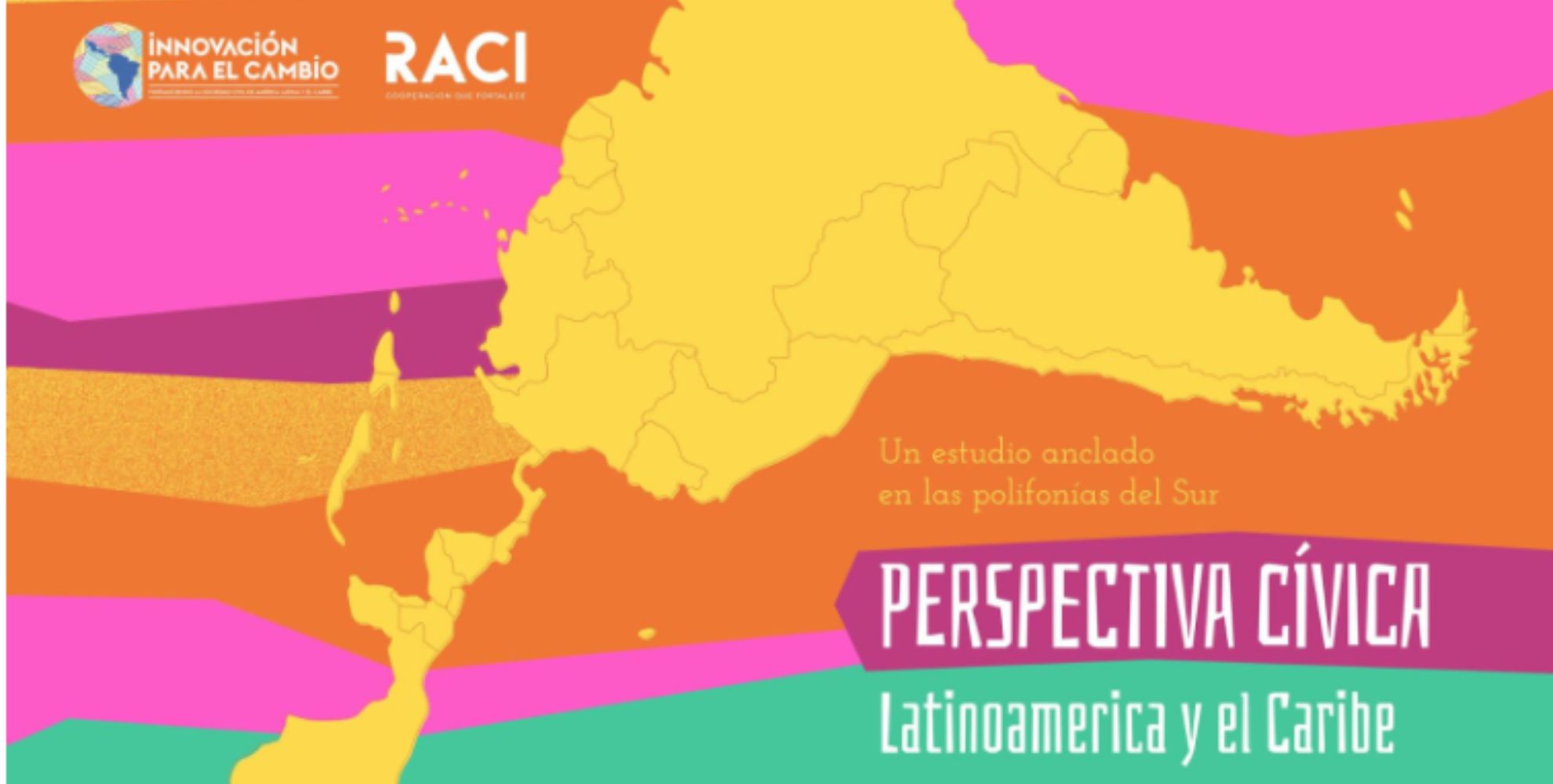
The Launching of Civic Perspective: Latin America and the Caribbean
Perspectiva Cívica [Civic Perspective] is a project that was initiated by RACI in 2018, along with Innovation for Change in Latin America and the Caribbean (I4C). It seeks to understand the state of organizations in terms of enabling spaces. In this periodic study, we seek to take the pulse of social organizations, which is to say, identify the conditions in which civil society functions and develops itself.
In order to move this project forwards, a quali-quantitative methodology was employed, the basis of it being a survey that was completed by the leaders and work teams of social organizations, who can acknowledge key strengths, weaknesses, and necessities.
In the words of the Executive Directorate, “Civil Perspective Latin America and the Caribbean seeks to justly explore both the main differences and existing relations between Non-Profit Organizations—of differing sizes and formats—with a strong focus on the visibilization of the enormous work that these organizations complete by and large in Latin America and the Caribbean. We hope that this regional project functions as a jump starter for future articulations, reinforcing our commitment of creating an enabling space that is more fitting for all civil society.
During the production stage of this study, various aspects were pointed out, such as the high inequity in the entire region. In this regard, Latin America and the Caribbean stand out as one of the most unequal and inequitable regions. Aditionally, other aspects like marginality, exclusion, the informality of practices, and the instability of lifestyles were also noted.
In terms of rented and volunteer personnel, one of the results that this investigation showed was that only 1 out of 8 people working in the social sector receives some kind of remuneration for the work that they complete; 36% of the people who participated in the survey work as volunteers. In terms of the education of the personnel, 88% of people working in social organizations do not count with tertiary or university education. This is to say that the least privileged people hold and mobilize the social sector in the region.
This study highlights the fundamental role that organizations must fulfill. In this sense, the invitation is to rethink the systemic relations within civil society and all involved parties (the State, the private sector, international cooperation, and the organizations). Simultaneously, this transformation process must be guided and carried out by the organizations in a collaborative, bottom-up approach.
Finally, we must acknowledge that this would not have been possible without the support of the volunteers and of the enourmous work team that stands behind this investigation; we are proud and thankful.
You can access our study by clicking on the link; we encourage its diffusion, discussion, and subsequent analysis.

